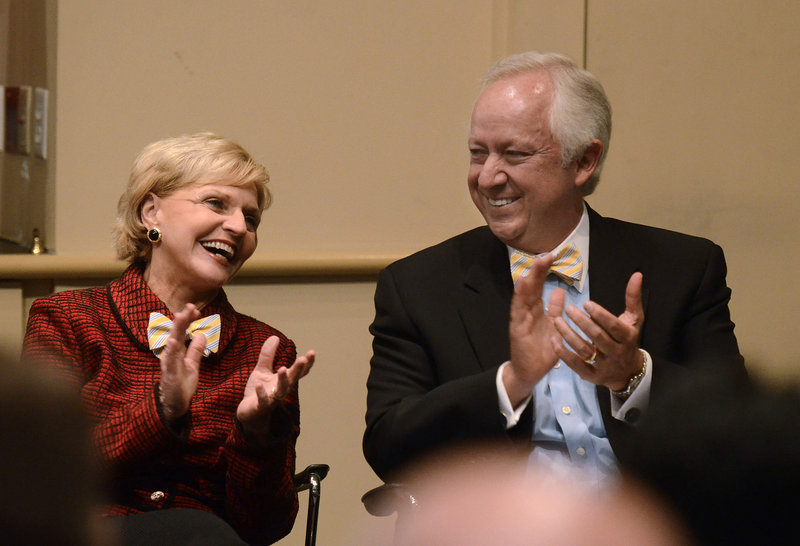CHARLOTTE, N.C. — The $22 million in local and state incentives used to entice Chiquita’s headquarters to Charlotte — and other payouts like it — are critical in the fight to create jobs, recruiters say.
But the bets, using taxpayer money, don’t always pay off. Critics say incentives might have little influence on a company already planning a move or do little more than shift workers from one state to another. And when government money is a deciding factor in the decision to relocate, some worry the company will flee to another state when the agreement expires.
That has left some wondering, amid the fanfare, how long the Charlotte-Chiquita marriage will last. “I don’t know what Charlotte’s deal is,” former Cincinnati Mayor Charlie Luken said last week. “But I guarantee when it’s up, (Chiquita) will be looking for the next highest bidder.”
Economic incentives are increasingly in play as the competition for jobs heats up. With the national unemployment rate at 8.6 percent, state leaders are wooing potential employers with everything from video messages to multimillion-dollar tax breaks.
Charlotte’s effort to land Cincinnati-based Chiquita Brands International — and the 400 high-paying jobs it will bring — also included expensive dinners, custom-made bowties and a citywide Twitter campaign. Chiquita also cited the advantages of Charlotte’s airport, with far more nonstop flights to the countries where the company does business.
“States and localities have become more aggressive in their use of incentives, and at the same time … companies have become a lot more aggressive in what they ask for,” said Jonathan Morgan, a professor in the School of Government at the University of North Carolina-Chapel Hill. “It kind of contributes to this slippery slope of, the more you offer in incentives, the more companies will demand.”
For decades, states relied on their business climate, cost of living and quality of life to draw businesses. But eventually, states began throwing in cash grants, tax breaks, worker training programs and other perks.
Incentives are now a key element in recruiting. “As long as other states are using them, I believe it will be necessary for us to have some tools in our tool kit to be competitive here,” said Dale Carroll, deputy secretary of the N.C. Department of Commerce. “I can’t envision a time when they will not be important, because our competition is not decreasing the use of them, but rather increasing them.”
Carroll said the state only grants incentives if the benefit would outweigh the cost. The state requires annual reports on the companies’ investment and job-creation progress.
Grant money isn’t paid upfront; rather, it’s spread over several years and based on payroll taxes the state withholds from the jobs created — meaning that if a company doesn’t create new jobs, it doesn’t receive any money.
Carroll said officials consider incentives for high-impact projects when, “because they are attractive to us, (that) makes them attractive to other states.”
“We have to work at it every day,” he said. “The unemployment rate is stubborn, and that’s not unique to North Carolina, so we continually redouble our efforts and put a lot of time and energy to compete for every project.”
Incentives played a part in big job announcements at times when they were sorely needed, including power tool maker Husqvarna and appliance giant Electrolux last year in the Charlotte area. Overall, the state has awarded 139 JDIG grants since the program’s inception, promising more than 40,000 direct jobs and billions of dollars of investment.
But they haven’t all delivered. Government data show 43 of those companies — more than 30 percent of those awarded grants — withdrew or were terminated after they failed to create the jobs or investment agreed upon with economic developers.
Most of those deals fell through as the recession deepened, when companies were forced to scale back hiring.
In October 2009, for instance, state officials ended a $280 million grant with Dell Inc. — one of the state’s largest economic development prizes — after the company said it was closing its Forsyth County computer manufacturing facility and laying off its 905 workers. Dell paid back the money it had received.
State officials say some failed grants still result in jobs, though not as many as planned. Still, governments stand to lose on extras such as infrastructure improvements and worker training if a deal doesn’t pan out.
Critics say public money shouldn’t sweeten deals for private companies, especially when the incentives simply move jobs from one state to another.
“If all we’re doing is having interstate warfare, then the only one benefiting is the corporation,” said Bob Orr, who founded the Raleigh-based North Carolina Institute for Constitutional Law, which provided the legal representation for taxpayer lawsuits challenging the Dell incentives and others. “It’s not really doing anything good for the country.”
Send questions/comments to the editors.



Success. Please wait for the page to reload. If the page does not reload within 5 seconds, please refresh the page.
Enter your email and password to access comments.
Hi, to comment on stories you must . This profile is in addition to your subscription and website login.
Already have a commenting profile? .
Invalid username/password.
Please check your email to confirm and complete your registration.
Only subscribers are eligible to post comments. Please subscribe or login first for digital access. Here’s why.
Use the form below to reset your password. When you've submitted your account email, we will send an email with a reset code.